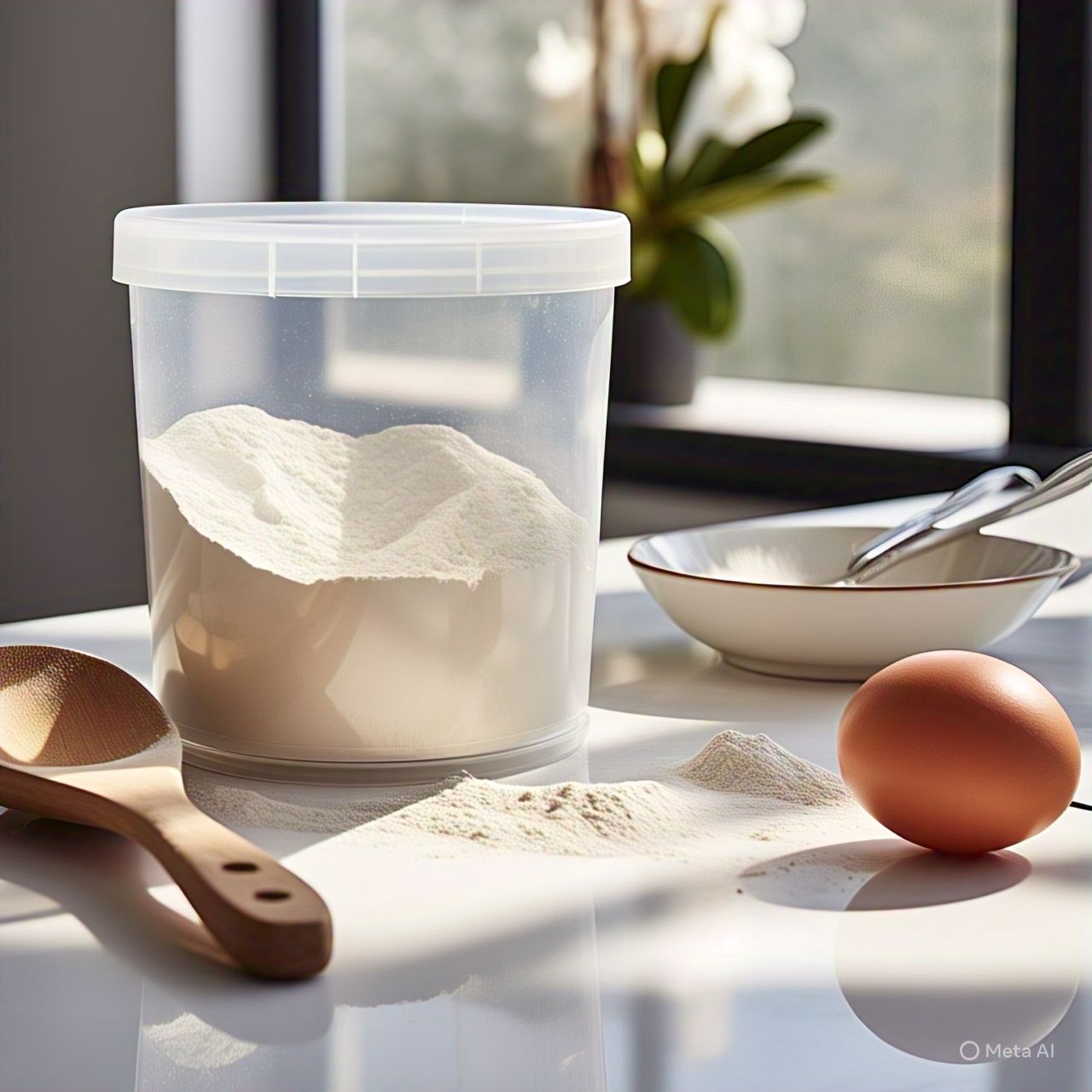In the world of health, fitness, and food innovation, egg white powder is becoming an increasingly popular ingredient. Whether you’re an athlete looking for a clean source of protein, a baker seeking a reliable egg substitute, or someone simply curious about nutrition, egg white powder has something to offer. But what exactly is it, and why should you care?
In this in-depth article, we’ll explore everything you need to know about egg white powder — from how it’s made to its benefits, uses, nutritional profile, and frequently asked questions.
What is Egg White Powder?
Egg white powder is a dehydrated form of egg whites. Made by separating the whites from the yolks, pasteurizing them, and then drying them into a fine powder, this product retains all the benefits of fresh egg whites without the need for refrigeration.
The result is a long-lasting, versatile product packed with protein and free from fat and cholesterol. It is especially valued in the food industry and among fitness enthusiasts for its convenience, shelf stability, and excellent nutritional value.
How is Egg White Powder Made?
The process of making egg white powder involves several steps:
1. Separation
First, eggs are cracked, and the yolks are separated from the whites. This is done using automated machines in industrial settings to ensure hygiene and efficiency.
2. Pasteurization
The raw egg whites are then pasteurized to eliminate any harmful bacteria like Salmonella. This process also helps to maintain the functional properties of the egg whites, such as foaming and binding.
3. Drying
The pasteurized egg whites are spray-dried at a controlled temperature to produce a fine, shelf-stable powder. The drying process removes most of the moisture, giving the product a long shelf life.
Nutritional Profile of Egg White Powder
Egg white powder is considered a high-quality, complete protein source. Here’s a typical nutritional breakdown per 100 grams:
| Nutrient | Amount |
|---|---|
| Calories | 380 kcal |
| Protein | 80–85 g |
| Carbohydrates | 5–7 g |
| Fat | 0–1 g |
| Cholesterol | 0 mg |
| Sodium | 1,000–1,400 mg |
| Calcium | 50–60 mg |
| Potassium | 1,000 mg |
Note: Nutritional values may vary slightly depending on the brand and manufacturing process.
Health Benefits of Egg White Powder
1. High-Quality Protein Source
Egg white powder contains all nine essential amino acids, making it a complete protein. This makes it ideal for muscle repair, growth, and overall body function.
2. Low in Calories and Fat
Unlike whole eggs, egg white powder contains almost no fat or cholesterol. This makes it a heart-friendly option for those watching their fat intake.
3. Supports Muscle Growth and Recovery
Athletes and bodybuilders use egg white powder as a post-workout protein source to aid in muscle recovery. It’s a slower-digesting protein compared to whey, which helps sustain protein synthesis over time.
4. Allergen-Friendly (Compared to Dairy)
For those who are lactose intolerant or allergic to dairy, egg white powder is an excellent alternative to milk-based protein powders like whey or casein.
5. Convenient and Long-Lasting
Egg white powder doesn’t require refrigeration and can last for months in your pantry. It’s perfect for emergency food storage or when traveling.
Common Uses of Egg White Powder
In Baking
Egg white powder is widely used in baking recipes, especially in commercial food production. It helps improve volume, stability, and texture in products like meringues, angel food cakes, and macarons.
In Protein Shakes
You can mix egg white powder into water, milk, or smoothies for a quick protein boost without the sugar and additives found in many commercial protein drinks.
In Cooking
Egg white powder is also used in making omelets, quiches, and other savory dishes. It rehydrates well and can function similarly to liquid egg whites.
In Confectionery
Candy makers love egg white powder for its foaming capabilities, which are essential for marshmallows, nougats, and other aerated sweets.
Egg White Powder vs. Other Protein Powders
Egg White vs. Whey Protein
- Whey digests quickly and is ideal post-workout.
- Egg white powder digests slower and is lactose-free, making it suitable for people with dairy issues.
Egg White vs. Casein Protein
- Casein digests slowly and is derived from milk.
- Egg white powder offers similar slow digestion without dairy concerns.
Egg White vs. Plant-Based Protein
- Plant proteins (e.g., pea, soy) may lack certain amino acids.
- Egg white powder is a complete protein and generally better absorbed.
How to Use Egg White Powder
Rehydration Ratio
To rehydrate egg white powder into liquid egg whites, the general guideline is:
- 2 teaspoons egg white powder + 2 tablespoons water = 1 egg white
Mix thoroughly and let it sit for a few minutes before using.
Mixing Tips
- Use a blender or shaker bottle for smooth mixing.
- For baking, sift the powder with dry ingredients to avoid clumping.
- When whipping, ensure no oil or fat is present, or it may hinder foaming.
Who Should Use Egg White Powder?
- Fitness Enthusiasts: For clean, lean protein without additives.
- People with Dairy Allergies: It’s a non-dairy protein alternative.
- Bakers: For consistent results in delicate pastries.
- Busy Individuals: For quick meals or emergency food storage.
- Veggie-Lovers: While not vegan, it’s suitable for ovo-vegetarians.
Where to Buy Egg White Powder
Egg white powder is widely available online and in health food stores. Common brands include:
- NOW Foods
- Judee’s Gluten-Free
- Bob’s Red Mill
- MuscleEgg (for flavored versions)
- Naked Egg (clean, no additives)
Look for products labeled “100% egg white powder” without fillers or additives if you want a pure protein source.
Storage and Shelf Life
Egg white powder should be stored in a cool, dry place. Once opened, it’s best kept in an airtight container. If stored properly, it can last up to 1–2 years.
Tip: Avoid exposing it to moisture, as it can clump and spoil faster.
Potential Side Effects and Considerations
While generally safe, here are some things to keep in mind:
- High Sodium: Some brands have elevated sodium content, which might be a concern for those with hypertension.
- Egg Allergy: Obviously, those allergic to eggs must avoid it.
- Gas/Bloating: Consuming too much protein can cause digestive discomfort in some individuals.
Frequently Asked Questions (FAQs)
Q1: Is egg white powder safe to eat raw?
Yes, most egg white powders are pasteurized, making them safe to consume without cooking. Always check the label for confirmation.
Q2: Can I use egg white powder instead of fresh egg whites in baking?
Absolutely. Just follow the rehydration instructions and substitute in equal proportions. It’s especially handy when you don’t have fresh eggs.
Q3: Is egg white powder keto-friendly?
Yes, it contains negligible carbs and fits well within ketogenic dietary guidelines.
Q4: Can egg white powder help with weight loss?
Yes. It’s a high-protein, low-fat food that can support satiety and lean muscle mass, which are both key factors in weight management.
Q5: What does egg white powder taste like?
It has a neutral taste, similar to fresh egg whites. When mixed into shakes or recipes, it usually doesn’t affect the flavor much.
Q6: Can I mix egg white powder in coffee or hot liquids?
It’s not recommended unless pre-mixed into a liquid. Directly adding to hot liquids may cause it to clump or cook prematurely.
Q7: Is egg white powder vegan?
No. Since it is derived from chicken eggs, it is not suitable for vegan diets.
Q8: How does egg white powder compare to eating whole eggs?
Egg white powder has no fat or cholesterol, unlike whole eggs. It’s ideal for those looking to limit calories or dietary cholesterol while still getting complete protein.
Conclusion: Is Egg White Powder Worth It?
Egg white powder is more than just a protein supplement — it’s a multi-functional ingredient that offers impressive nutrition, convenience, and culinary flexibility. Whether you’re aiming for muscle gains, crafting the perfect meringue, or simply looking for a healthier protein source, egg white powder deserves a place in your pantry.
Its long shelf life, ease of use, and excellent protein content make it a smart investment for athletes, bakers, and everyday cooks alike.



